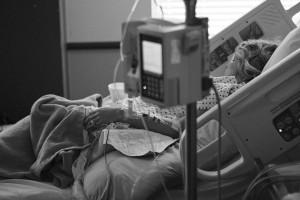Better understanding of cancer prehab could save employers more than £60 million every year
Forty-five percent of those diagnosed with cancer each year will need to undergo surgery, with it being highly likely they will face complications, and according to a leading cancer surgeon, employers could benefit significantly from enabling employees diagnosed with cancer to access prehab.
Complications lead to extended recovery and as a result to both a significant financial cost to employers and reduced productivity from employees.
With around 367,000 newly diagnosed cases in the UK each year, Krishna Moorthy, co-founder of Onko – a digital cancer care app that provides health improvement programmes for people preparing for, undergoing, and recovering from cancer treatment – says employers could save more than £60 million if the benefits of prehab were fully realised.
And that’s just the tip of the iceberg, as research shows that 25-30% of cancer patients don’t go back to work post treatment, so employers are likely to make further losses, owed to the cost of retraining.
 Prehab enables people with cancer to prepare for treatment more effectively by promoting healthy behaviours and prescribing exercise, nutrition, and psychological interventions appropriate to the individual’s needs. Moorthy says prehab is vital to cancer treatment and should be given far greater emphasis and that better knowledge around prehab could result in thousands of cancer patients recovering from surgery far more quickly.
Prehab enables people with cancer to prepare for treatment more effectively by promoting healthy behaviours and prescribing exercise, nutrition, and psychological interventions appropriate to the individual’s needs. Moorthy says prehab is vital to cancer treatment and should be given far greater emphasis and that better knowledge around prehab could result in thousands of cancer patients recovering from surgery far more quickly.
“Around 40% of people undergoing cancer surgery will have some sort of complication post-op1. Firstly, complications prolong the patient’s hospital stay, but the main issue to employers is prolonged recovery and increased time on sick leave,” he says.
“People who experience complications have a poorer quality of life and take much longer to recover. On average, people go back to work around three months after cancer surgery, but if they’ve suffered complications, this could add another three months to their time off.”
Those patients undertaking prehab see the risks of complication significantly reduced, meaning their recovery time can be much faster.
For those using Onko to prepare for surgery, as well as physical fitness improving by 10 per cent, the post-surgery complication rate is halved, and those that do have complications tolerate them far better, experiencing fewer severe complications. In addition, there is also a significant reduction in the length of their post-operative hospital stay – three days on average.
With fewer complications, employees are likely to take an average of three months off work rather than six and thus employers could save £62.6 million in savings on statutory sick pay.
Moorthy adds: “Patients using Onko through treatment – pre, during and post-surgery – receive everything remotely. All programmes are taken in the comfort of their own home, meaning there is no need to spend time travelling to and from appointments, and a far reduced risk of COVID-19.”
Onko, which launched last year, is a direct-to-consumer product but is now expanding its availability to employers to provide the service as part of a wider employee benefits package.
“There is a direct correlation between underlying general health and cancer treatment outcomes,” explains Venetia Wynter-Blyth, a consultant cancer nurse who co-founded Onko with Moorthy.
“If people take a proactive approach to optimising their health, they are likely to tolerate treatment better and recover quicker. Whilst we can’t influence cancer diagnoses, we can certainly enable people to take control of their health which, in turn, reduces hospital admissions and complications and accelerates recovery.”

Leave A Comment
You must be logged in to post a comment.